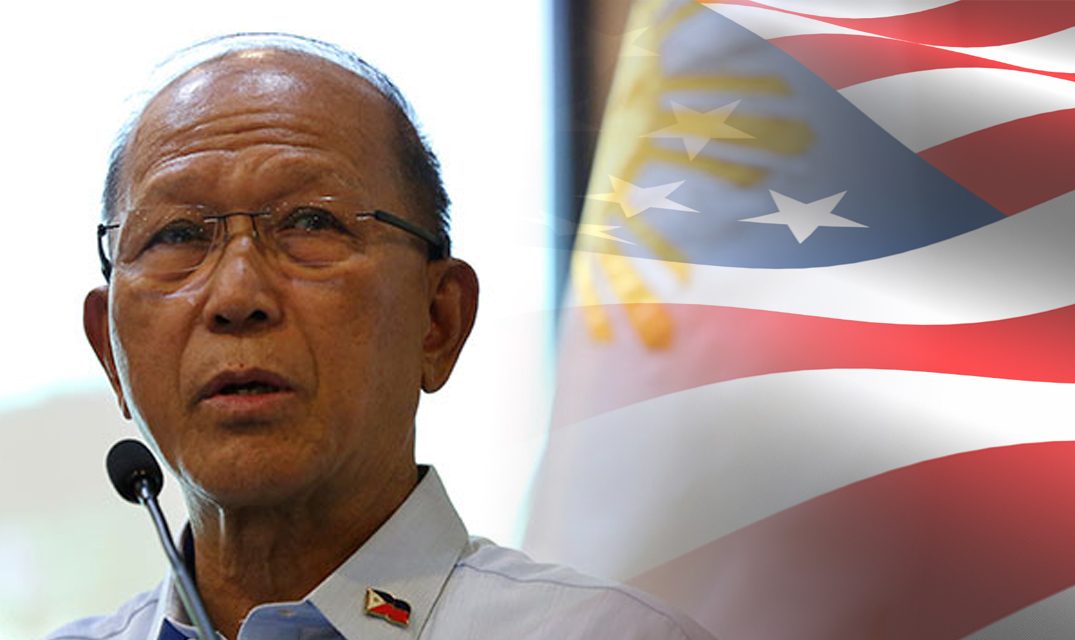It is fitting that Defense Secretary Delfin Lorenzana made the first public declaration of the Duterte regime’s all-out war against the New People’s Army (NPA).
Duterte’s termination of the peace talks, after all, is the culmination of the military and security establishment’s relentless campaign to undermine the peace efforts by the NPA, Communist Party of the Philippines (CPP), and National Democratic Front of the Philippines (NDFP).
Amid the peace negotiations and indefinite unilateral ceasefire separately declared by the Armed Forces of the Philippines (AFP) and the NPA, the AFP under the executive supervision of the Defense Secretary, occupied some 500 barrios nationwide and pursued combat operations against the NPA.
Apparently meant to provoke the NPA, Lorenzana has actively spread the propaganda that these combat operations are anti-criminality initiatives of the police, assisted by the AFP, against supposed lawless elements.
In addition, it can also be assumed that it was the defense and military establishment headed by Lorenzana that convinced Duterte to renege on his earlier commitments to release the political prisoners.
The increasingly untenable unilateral ceasefire and issue of political prisoners proved to be the really thorny issues in the peace talks from the onset until its eventual termination by Duterte.
The role and agenda of Lorenzana in sabotaging the peace talks – which based on the last joint statement of the NDFP and government panels were moving positively overall and faster than expected despite the contentious issues – is better understood by exposing what is at stake for US imperialism and the latter’s ties with Duterte’s Defense chief.
For all the scathing remarks of Duterte against former US President Barack Obama and the independent foreign policy rhetoric, the volatile President isn’t the biggest foe of US imperialism in the Philippines. It is still the CPP-NPA-NDFP, and its revolution for national democracy and sovereignty that the US and its string of trusty puppet regimes have failed to defeat in the past 48 years.
A successful peace agreement with the revolutionary groups would seriously impair US imperialism’s strategic political, military and economic interests in the country and region. At a time of prolonged global monopoly capitalist crisis, rise of China and its strengthening alliance with Russia, and America’s own uncertainties under a Trump regime, it is crucial for US imperialism to protect its dominant position in its neo-colonies like the Philippines.
And here comes Lorenzana, a retired Philippine Army General, as US imperialism’s reliable point man.
For most part of the past two decades, Lorenzana was based in Washington DC. He was the Philippines’ defense and armed forces attaché from 2002 to 2004 and special representative for veterans’ affairs from 2004 to 2015. (Read Lorenzana’s profile on the Defense department’s website)
Among his tasks was to supervise and monitor the bilateral military relations between the Philippines and the US. It covers the Visiting Forces Agreement (VFA), military exercises, military aid, training, and foreign military sales.
Lorenzana was among those who developed the terms of reference (TOR) for the Balikatan exercises in 2002. That TOR was the first in Balikatan history that allowed US involvement in domestic combat operations.
The US State Department trained Lorenzana on crisis management. The US Armed Forces bestowed on him the Legion of Merit, a military honor for “exceptionally meritorious conduct in the performance of outstanding services and achievements”.
It’s not only in the peace talks with the CPP-NPA-NDFP that Lorenzana capably played his role as US imperialism’s point man. Remember how he tempered Duterte’s tirades against the US and threats of rescinding the VFA and Enhanced Defense Cooperation Agreement (EDCA) and stopping the military exercises with the US?
Now, we ended up with the US building military facilities inside agreed locations under the EDCA as announced recently by Lorenzana, of course, as well as 258 joint exercises with the US military this year under the VFA.
But it is important to stress that Lorenzana’s key role in promoting the interests of US imperialism does not absolve President Duterte of accountability in the scuttled peace talks and the continuing US military presence and intervention. As President, the ultimate and biggest accountability still rests on him.
By Lorenzana’s own account, he and the President first became close when he was assigned in Davao in the late 1980s to lead counterinsurgency operations against the NPA. A product of that stint of Lorenzana in Davao was State sponsorship of the anti-communist vigilante group Alsa Masa, which laid the groundwork for the establishment of the Citizen Armed Force Geographical Unit (CAFGU).
That all-out war obviously did not result in the decisive downfall of the NPA, only in the breakdown of human rights and rule of law.
































